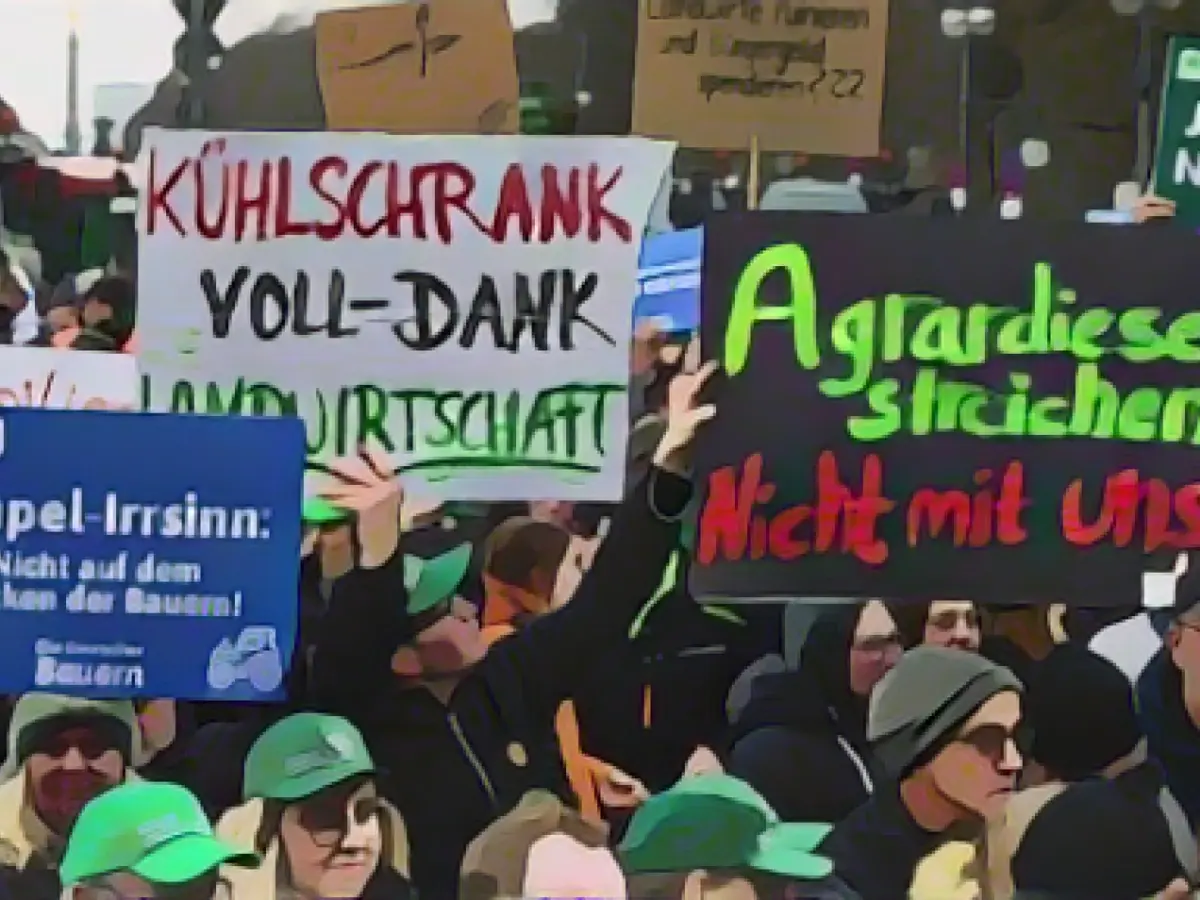Farmers Stage Massive Protest in Berlin against Austerity Measures
Minister Özdemir stood firm against the government's austerity plans, voicing his concerns in the cabinet. "I'm battling to prevent this from happening too harshly," he declared, acknowledging the rising fears in the agricultural industry. The boisterous demonstrators, armed with whistles, boos, and cowbells, frequently interrupted his speech, calling for fresh elections. Rukwied, the Association President, warned of escalating protests nationwide if the resolutions were implemented as planned.
The contentious budget consolidation stems from the Federal Constitutional Court's ruling, necessitating financial adjustments by the federal government. As part of these measures, agricultural subsidies and vehicle tax exemptions for equipment would be phased out. The German Farmers' Association (DBV) spearheaded the plea for farmers' participation in the Berlin protests.
Related Articles:
Furthermore, the farmers' discontent with the austerity plans gathers momentum at the iconic Brandenburg Gate. Acutely aware of the industry's existential fears, Özdemir vowed to advocate for a fairer implementation process within the cabinet. The German Farmers' Association, in a bid to spark widespread protest, urged participating farmers across Deutschland.
Amidst the protests, Özdemir underlined his commitment to a more equitable implementation, acknowledging the profound impact on the agricultural sector. The political landscape is riled by this debate, focusing on the farmers' financial reserves and the function of subsidies in bolstering vital industries.
Background and Motivation
The farmers' protests were primarily driven by three concerns:
- Agricultural Diesel Tax: The proposed reduction in tax relief for agricultural diesel fuel by 440 million euros would result in higher costs for farmers, negatively affecting their competitiveness within the EU.
- Vehicle Tax Exemptions: Farmers were upset by the 485 million euros cut in vehicle tax exemptions for agricultural and forestry vehicles, arguing that they should not be obligated to fund road maintenance on highways, as they mainly use rural paths.
- Perceived Inequity: Farmers perceived the cuts as hitting a small, vulnerable population, and the values behind these reductions as unfair.
Government Responses
The German government has responded to the protests in diverse manners:
- Habeck's Blockade: On January 5, 2024, farmers obstructed German Minister for Economic Affairs, Robert Habeck, from disembarking a ferry, drawing widespread attention to their demands.
- Public Opinion: Opinion polls reveal a mixed response to the farmers' cause, with 73% of the public voicing full or partial understanding of their grievances.
- Critics of the Farmers: Some critics argued that major farm operations were less vulnerable to financial struggles than protesters claimed.
- Government Position: The German government has proposed that these austerity measures are essential for responsible fiscal management and a balanced allocation of tax burden across various sectors.
In essence, the farmers' protest highlights their concerns over escalating expenses, diminished competitiveness, and perceived unfairness in proposed tax modifications. The German government remains resolute in implementing austerity measures, asserting that they contribute to fiscal responsibility and a balanced tax distribution.








